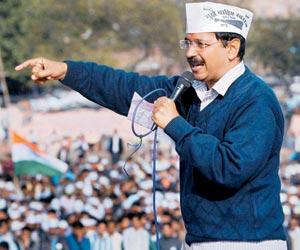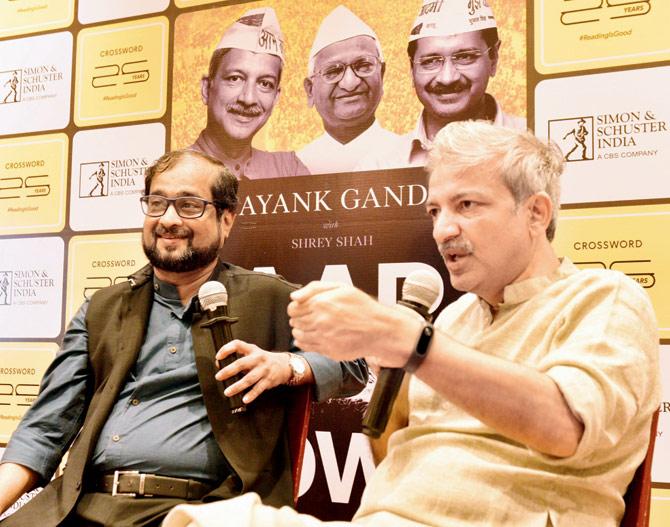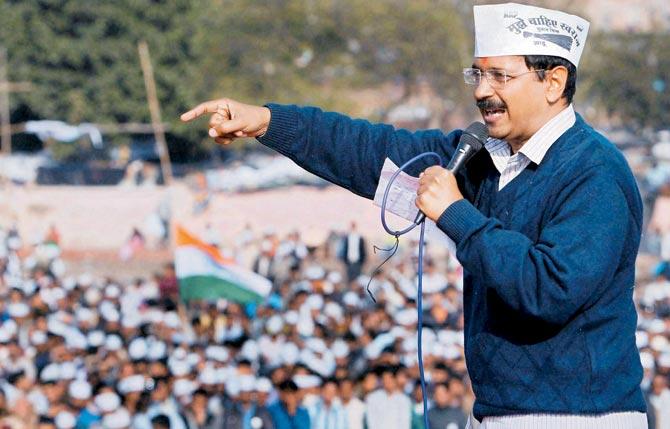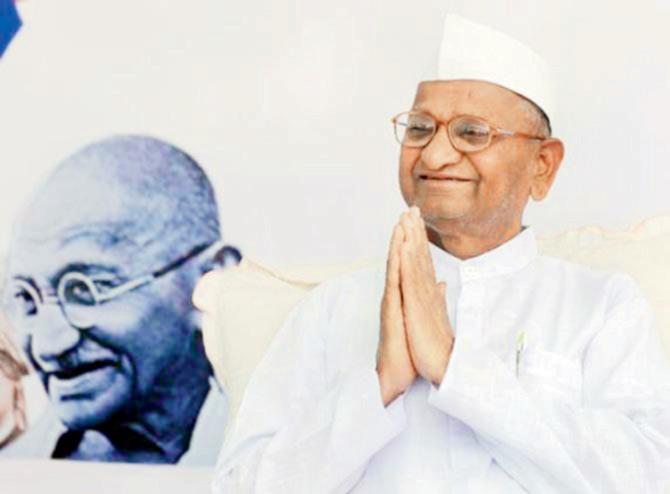Mayank Gandhi reveals how a people's movement became a one-man game


Mayank Gandhi on ground at rural development projects
ADVERTISEMENT
The Aam Admi Party (AAP) took the country by storm in 2012 and people believed they were looking at a new dawn. But "leaders are not what they seem like from far. When you go closer, you can see that they have feet of clay. What they project and what they actually are, are two different things", alleged Mayank Gandhi, former AAP leader and a founder member of the party, in an email interview, hours before his book AAP & Down: An Insider's Story of India's Most Controversial Party (Simon and Schuster India), co-authored by Shrey Shah, was released in the city yesterday.

At the book launch in Mumbai. Pic/Bipin Kokate
Wake up, India
The tell-all was released to mark the third anniversary as the ruling party in Delhi. When we asked the Mumbai-based leader about his reasons for penning it, he said, "The primary purpose was to lay down the bare truth about what happened and how the country's citizens realised that democracy was more than just about voting during five-year elections. It is to also tell the youth who still harbour the hope of alternative politics coming from AAP that their dream is over."

In the book, besides Arvind Kejriwal and Anna Hazare, Gandhi focuses on those who worked behind the scene to shake the nation into consciousness. He elaborated, "As a young man, I had felt the pain of being betrayed when the Janata Party experiment failed, in which I had personally invested part of my life. I was insignificant then and inconsequential. Now, when the youth of the country are being betrayed all over again, I can feel their pain. And this time, I am not so inconsequential and would like to be a medium of letting the people know what happened and how."

A file photo of Arvind Kejriwal at an AAP rally in Delhi
Opportunity lost
Gandhi, who played a key role in AAP's formation, admits that writing the book was a tumultuous journey. From re-living the India Against Corruption (IAC) days to the crushing of dreams, "the only thought that came to my mind was the opportunity that we lost in transforming the nation". Gandhi believes that AAP failed because instead of maintaining the founding principles for which it received extraordinary support, the party decided to indulge in the three Cs — corruption, casteism and communalism — after it won Delhi by unprecedented margins. "This impatience and abandonment of ethics and morals was the biggest mistake it made," he said.

But despite losing focus, the IAC movement has given people the courage to assert themselves before authorities and politicians. "Counter hegemony has started appearing as people have understood the power of standing up to the wrongs," says the man who has decided to focus on development politics, and is now working for the development of rural India, starting with the Beed district in Maharashtra.
AAP & Down, which is a documentation of India's "second independence" struggle according to Gandhi, gives readers a chance to see how power changes man. "People who operate in the name of serving the poor, many a times are serving their personal ambitions and egos," the author said.
Catch up on all the latest Mumbai, National and International news here
Download the new mid-day Android and iOS apps to get updates on all the latest and trending stories on the go
 Subscribe today by clicking the link and stay updated with the latest news!" Click here!
Subscribe today by clicking the link and stay updated with the latest news!" Click here!






